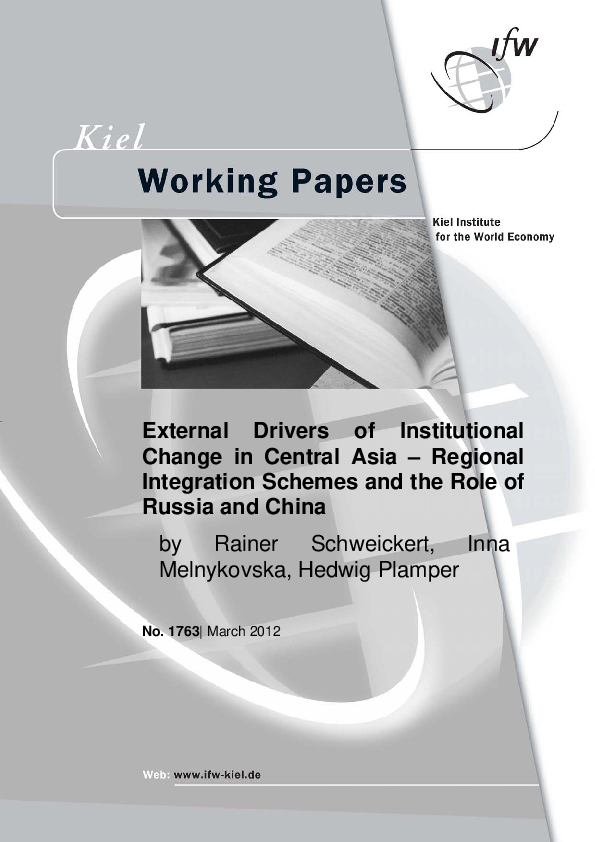Working Paper
External Drivers of Institutional Change in Central Asia – Regional Integration Schemes and the Role of Russia and China
Authors
Publication Date
JEL Classification
Key Words
Related Topics
Russia
Russia and China are assumed to challenge democratization and to promote autocracy. In a first step, we analyze Central Asia as the most-likely case, considering both Russia and China as relevant external actors. We develop a concept for our analysis based on the different strategies of Russia (dominance) and China (doing-business) towards the region and present the results of a qualitative study of the main dimensions of autocracy promotion with respect to regional and bilateral schemes. In a second step, we extend a previous framework (Melnykovska and Schweickert 2011) and provide econometric evidence based on a panel of post-socialist countries. We show that bilateral schems are (still) more relevant for external influences in Central Asia and that (unintentionally) China’s doing-business approach may in fact promote institutional change. Arguably, democratization should not be a precondition for cooperation as in European Neighbourhood Policy (ENP) but rather be promoted by sweeping economic cooperation incentives.




